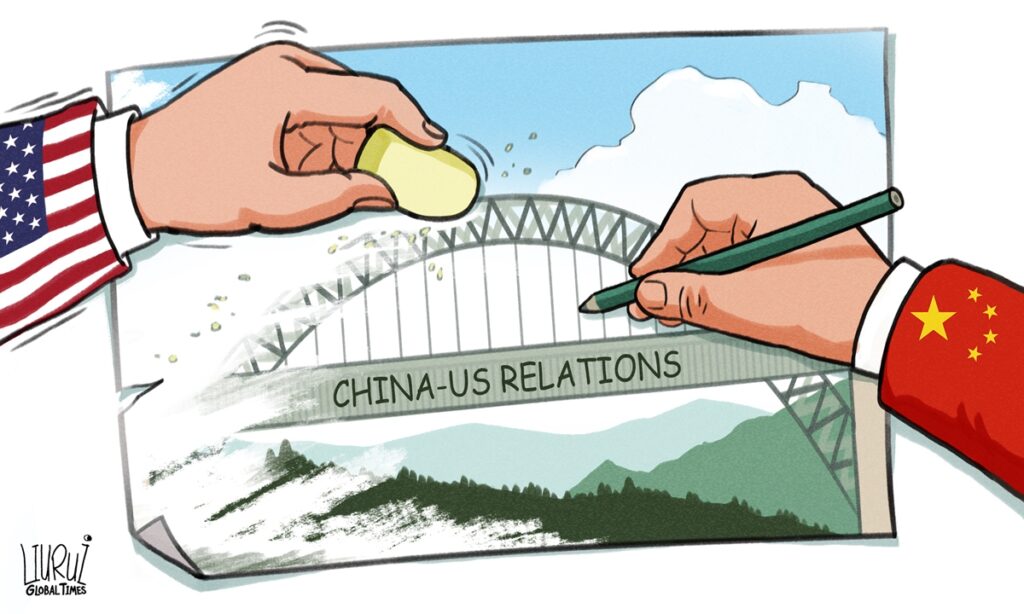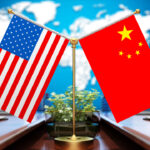The US is politicizing, weaponizing and overstretching the concept of national security in educational cooperation and exchanges and beyond. While Washington talks about inclusiveness and welcoming Chinese students, it wields a “harassment stick” in its hands.
China’s Ministry of State Security on Monday on its WeChat account offered some suggestions to outbound travelers in how to handle the unwarranted questioning, harassment, and detention of Chinese citizens by certain countries. This clearly demonstrates the extent to which certain countries, especially the US, have been harassing Chinese travellers. Regarding the recent frequent occurrence of Chinese students being questioned, the Ministry of Foreign Affairs and the Chinese Embassy in the US have also stated that the US moves undermine Chinese citizens’ lawful rights and interests and basic human rights, cause the chilling effect and sour the atmosphere for China-US people-to-people exchanges.
The suggestions provided by the Ministry of State Security include four major issues and corresponding countermeasures, such as how to deal with unwarranted questioning during overseas travel and how to respond to unknown individuals attempting to recruit or infiltrate. In particular, it tells people how to handle questions related to Chinese state secrets or internal information, which indicates that certain countries, especially the US, treat questioning Chinese citizens as a means to coerce and illegally obtain China-related information.
The US has adopted presumption of guilt, illegal procedures, and falsification of evidence against Chinese students, which contradicts with its consistent promotion of the rule of law. During questioning, Chinese students have even been restricted in personal freedom for long periods of time for mandatory inspections and confiscation of mobile phones and other electronic devices. This kind of trampling on human rights completely contradicts the so-called democratic, free, and human rights values that the US has always advocated, highlighting its hypocrisy and double standards.
Looking back at the development of China-US educational exchanges in recent years, it is evident that the US has exaggerated the concept of national security to the point of being overly cautious and is taking organized and planned actions to suppress China. In 2018, the US Department of Justice launched the “China Initiative,” a witch-hunt action against Chinese scientists. In 2020, then president Donald Trump signed Presidential Proclamation 10043, which restricts some Chinese students and scholars from entering the US because they are “at high risk of being exploited or co-opted by the PRC authorities.” Now, the US has not stopped harassing Chinese scholars and students but rather intensified it. This raises the question: Is the US once again falling into the iron curtain of the Cold War and reviving the specter of McCarthyism?
This year marks the 45th anniversary of the establishment of diplomatic relations between China and the US. Although China-US relations have encountered some challenges, since the “San Francisco vision” reached by the two heads of state in November 2023, China-US relations have been developing positively. The two heads of state have reiterated the importance of promoting people-to-people exchanges and expanding various bilateral exchanges in education for overseas students. However, in just a few months, the US has not kept its word. How can it gain the trust of China and the international community?
The US is currently in a state of “sub-healthy mentality,” Lü Xiang, a US studies expert and research fellow at the Chinese Academy of Social Sciences, told the Global Times. ”It constantly imagines that someone wants to harm it. This creates an intimidating effect and makes people feel that going to the US is full of risks.”
The harmful and destructive spillover effects of the wrong actions of the US are becoming apparent. Politicizing and weaponizing educational exchanges not only blocks the path of Chinese students’ education, but also leads to the loss of talents in the US, harming its own research environment and innovation vitality.
(Global Times)




